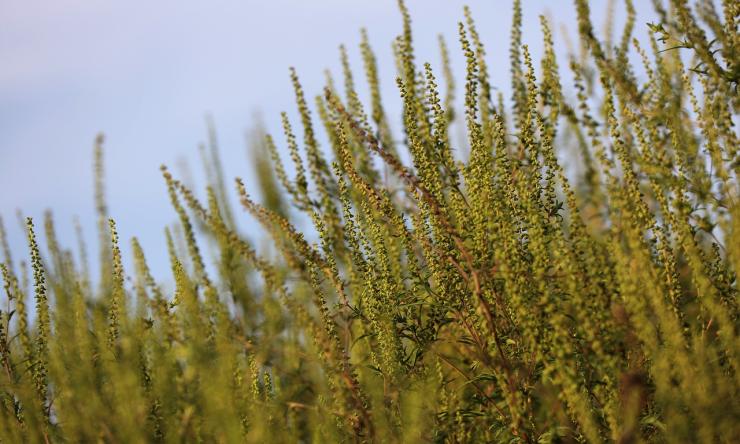Fall allergies: Ragweed and mold are in the air
Hot and dry conditions prevented severe summer allergies, but it also may have set the stage for an active fall allergy season. Dr. David Corry, professor of medicine in the section of immunology, allergy and rheumatology at Baylor College of Medicine, explains what allergies to expect this fall.
“This summer was good news for people who are sensitive to mold and pollen as there were little of those allergens in the air, but now that we’re seeing more rain coming in after this drought, we’re experiencing a big ragweed and mold bloom in Houston,” Corry said.
It is not uncommon for people to mistake allergy symptoms for other illnesses; however, there are a few key differences. Common allergy symptoms include sneezing, runny noses and itchy or watery eyes. When people begin experiencing sore throats and malaise, it may be a sign that a virus, like the flu or a cold, has entered the body. The body may have an extreme reaction to sudden exposure to large amounts of pollen or mold and may begin to have aches and pains, but this reaction is temporary. If you are unsure if symptoms are caused by allergies or the flu, COVID, or other viruses, tests can reveal the truth.
A fun fall activity that could cause a flair-up are hayrides at pumpkin patches. Those dried bales are made up of grasses, such as Bermuda or Timothy, which are active allergens for many people. Additionally, Corry reminds hay riders to keep an eye out for black streaks or foul, damp odors as these are indications that mold has formed.
Due to the city’s unique location, it is not uncommon for Houstonians to develop increased sensitivity to allergens caused by inhaled mold spores.
“Mold spores can take hold in your upper airway, causing allergy symptoms and an infection can cause something more severe like sinusitis. If mold spores get in your lower airway, it is possible to develop asthma,” Corry said. “We see this in tropical, humid environments and see patients who begin to feel allergy symptoms to allergens they previously didn’t.”
To ease your allergy symptoms, Corry recommends a regimen consisting of a nasal allergy spray and over-the-counter antihistamines, taking them twice a day if symptoms persist. Supplementing your defense against allergies with distilled water saline sinus rinses using a neti pot, squeeze bottle and even electronic machine options. If these over-the-counter options do not work, Corry invites people to speak with their allergists for more intensive treatments.
“Allergy shots can be helpful, but by seeing your allergist, we can check for things like nasal obstructions, nasal polyps or sleep apnea or begin immunotherapy,” Corry said.










